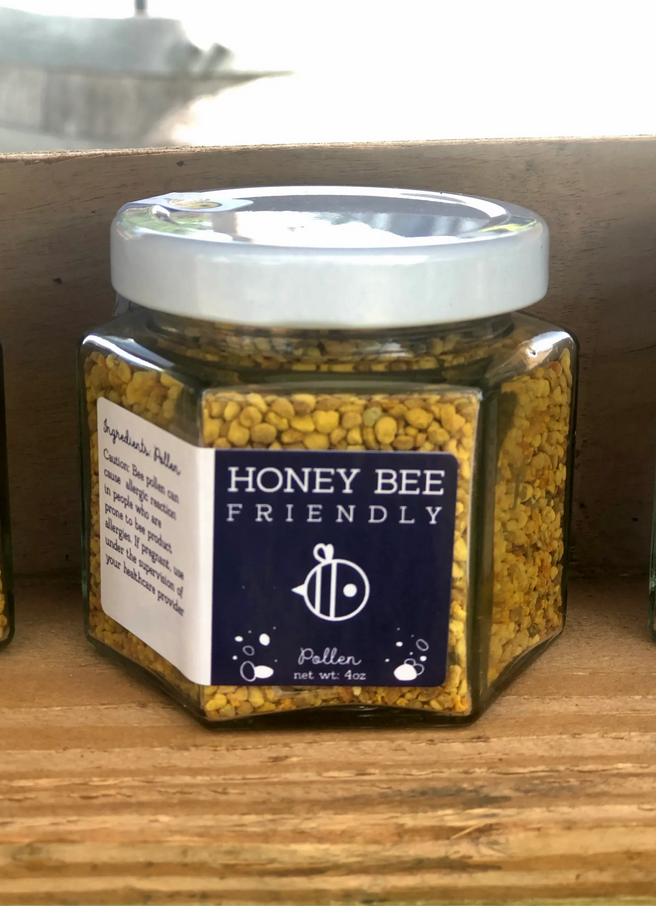
Bee Pollen as a Superfood
Bee pollen is flower pollen collected by honeybees that is packed into pellets and used as the primary food source for the hive. It’s made up of simple sugars, protein, minerals & vitamins, carbohydrates and fatty acids. While the foraging bees don’t eat bee pollen as-is, it can be harvested for humans and eaten in this form as our stomachs contain the necessary enzymes for it to be broken down and digested.
Honeybees collect pollen, partly, by using static electricity. They are covered in hair and simply flying through the air creates a static charge strong enough for pollen to stick to them when they land on flowers. Once they have a large amount of pollen stuck to their body, they will brush it down to the thicker bristled hairs on their legs and pack it on tightly. They will continue going to as many blooms necessary to collect about half their weight in pollen and until the packed pollen on their legs resembles a small ball. These balls of pollen are what is harvested by beekeepers for our consumption. Entrance reducers are put onto beehives to limit the size of the opening to the hive. When the bees enter, they have to squeeze their way in, and it knocks the pollen into a trap for collection. This is how we get the granules like in the photo above.
Inside the hive, forager bees pass the pollen from their legs to other worker bees who then seal it into comb chambers along with small amounts of nectar and saliva. This induces a fermentation process and creates “bee-bread”, a form of pollen that can be easily digested by the bees. Bee-bread stays sealed and stored until it’s ready to be eaten. As you can imagine, food that sustains the life of a highly active honeybee colony has to be rich in nutrients. And it certainly is. Bee pollen is 25% protein and contains all 22 essential amino acids along with essential vitamins such as Vitamin A, B, D, E and C. It is considered nature’s most complete superfood and can be used as nutrient supplement or as an allergy alleviation. Consuming bee pollen helps allergies by helping your body build resistance through ingestion. It is potent and does not need to be consumed in large quantities. If you’d like to work bee pollen into your diet, try sprinkling 1/4 teaspoon over your yogurt, cereal or salad. Serving amounts can be increased or decreased as needed.

